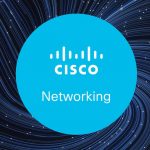
In the last year or so, you may have noticed that a lot of exhibition halls and conference centers haven’t had much business. This is obviously due to the pandemic that has been affecting the entire world.
However, this doesn’t mean that the world’s convention centers have sat gathering dust, places like RAI Amsterdam have been readying for the inevitable return of the crowds by improving their wireless networks. In RAI Amsterdam’s case, that means using Cisco to upgrade their services.
If you have made your way to Amsterdam for a conference, there’s a really good chance that you’ve been to RAI Amsterdam. Each year, this convention center will play host to 1.5 million visitors over 500 events and they’ve been doing it for over 125 years. That’s a lot of years. That’s a lot of people. And those people are going to want to stay connected to their devices.
Robert Hattink, the IT System and Network Consultant at RAI Amsterdam explains how they used to do it, “Sometimes we would temporarily rig and deploy 40 access points in four hours.” Once the conference ended, the extra access points would be taken down, put in storage and then be brought out for the next large conference.
“This is not sustainable,” he said.
As the conference hall’s hardware began to reach their end-of-life stages, Hattink knew that it was time to get a more permanent solution for their wireless network. He wanted a network that can handle the constant crush of devices that RAI Amsterdam experiences and he wanted to make sure this network was going to be a permanent one—no more lugging out old access points so that they can deploy them during the busiest conferences.
Hattink wanted to upgrade to Wi-Fi 6 (802.11ax) devices and he knew that he wanted to use Cisco products to get him there.
“The key reason we chose to stay with Cisco for Wi-Fi 6 is the interoperability between Cisco solutions, such as the security portfolio, with the network equipment—all with a single management,” Hattink explained. “Not only does that make it easier to use the solution, but you can also leverage a higher level of security when devices, equipment and servers come from the same vendor.”
Getting the most cutting-edge wireless network meant that Hattnik and his colleagues were going to deploy the Cisco Catalyst 9120 and 9130 Access Points, integrating them with the Cisco Catalyst 9500 and 9600 switches. But it was more than just the access points and switches that built up this network, two years ago RAI Amsterdam began using Cisco DNA Spaces to help with their wayfinding technologies and they’re managing their entire network with Cisco DNA Center. But as Hattnik explains, Cisco DNA Center is more than just a management tool.
“Over the past couple of months, we’ve built Cisco DNA Center into the system to centralize network visibility and improve troubleshooting,” he said. “When our network returns to heavy use, we’ll be able to monitor and troubleshoot much better than we did before.”
As every day passes and the world is starting to return to some sort of normalcy, RAI Amsterdam is looking forward to a much busier second half of 2021. The next year is also supposed to see a lot of business too for the conference center too, including Cisco Live! Europe 2022. Hattnik knows that a great wireless network for his facility is a huge leg up in the very competitive world of conference centers.
“No matter how many people are in our space and on our network, we want their experience to be excellent,” he said. “The more people who have that ‘wow’ factor, the better the perception of our venue. That positive publicity through word-of-mouth makes a difference, and we want to do everything we can to generate that buzz.”
Read the entirety of this use case.
Learn more about Cisco Catalyst 9100 Access Points.
Check out our Cisco Networking video channel
Subscribe to the Cisco Networking blog


CONNECT WITH US